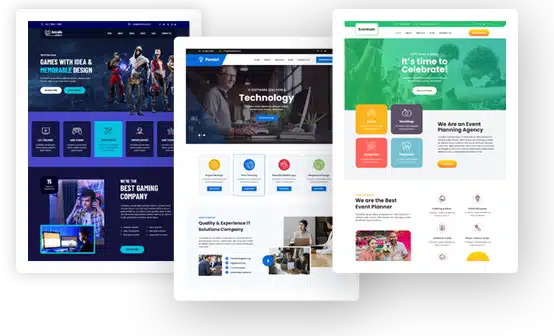5 Ways to Prepare for Negotiating Your First Offer as a Web Developer

According to the Bureau of Labor Statistics, the demand for web developers is expected to grow by 22% between 2019 and 2029.
Upcoming developers setting their horizons on full-time employment or gigs need to position themselves to sell their skills to land rewarding offers. This article will give you tips to prepare you to win a lucrative first offer in a web developer role.
Why you should negotiate the offer
Most job seekers accept what they have been offered without question. However, negotiating your salary offer not only reinforces the value of your skills but may also pave the way for higher future offers.
Most employers tend to give raises as a percentage increase of your current pay, so if you negotiate you’re likely to receive incrementally higher earnings with each raise.
Additionally, employers in areas that still allow asking for salary history often request your current pay stubs, which are likely to be used to determine your next offer. If you do freelance work, you have the option to create pay stubs online.
To avoid leaving money on the table, it’s often essential for web developers to negotiate the offers they receive. In some cases, companies may not have the flexibility to review the monetary aspects. However, you can gun for more perks that directly impact the employee engagement:
- Travel allowances
- Flexible schedules
- Professional development training courses
With the work-life balance benefits being on the increase, especially in the field of web development, which often requires working overtime to meet your client or employer needs, getting an overall sense of employee satisfaction is vital. If your company wants to improve your performance and increases engagement, 360-degree feedback surveys are ideal for getting this information. With the right 360 degree software, your employer can find how you feel and use that information to boost employee satisfaction. As you prepare to negotiate your offer, be ready for a series of questions that will provide insights into your compatibility with the company.
How to prepare for negotiating your first offer
So, now we know why you should negotiate, let’s move on to the how. Remember, while countering offers can may be an anxious experience, with a little knowhow and some preparation, you can position yourself to feel confident and handle the negotiation smoothly.
Leverage your value
Your value comes from the skills that you bring to the table. The market might be competitive, but knowing how to package your skills for presentation can make you stand out from the rest.
It’s important to be able to articulate your skills clearly and in detail. One great way to express your skills is to use examples of your past accomplishments to illustrate your value.
If you have no prior work experience, you can use illustrations from college or hobby projects. Using real-life examples to cement your track record proves the authenticity of your skillset. In turn, this demonstrates the value you can bring to an organization.
Also, apart from simply stating your proficiency in JavaScript, SQL, HTML5, or other programs, plough deeper into the finer details by outlining the results your work achieved.
For example, describe how your development of customized WordPress websites with advanced custom fields and WordPress customize API led to a 15% reduction in bounce rates. Using statistics helps to make your claims more believable.
Apart from hard skills, showcasing your soft skills can increase the value you have to offer. Look to your past experience in college, hobbies, or other jobs to find your transferable skills.
Soft skills can include:
- Teamwork
- Resilience
- Communication
- Project management
Sell your value
Picture the negotiation as a sales transaction where you’re selling a service (your skills) to the buyer (the company) in exchange for a reward.
Sales negotiation training courses teach that buyers make concessions and accept higher prices in exchange for more value. By articulating your skills as clearly as possible, you show the company that you are offering real value.
Once the company sees how beneficial your services can be, they are less likely to reject your higher counteroffer.
Research
Negotiating for an offer in a web development job or gig is not very different from any other business or sales negotiation.
Before the process, it’s important to dig up what you can from thorough research and due diligence.
As most winning sales training courses often teach, having realistic expectations can help set the tone for a more successful negotiation. Rather than pegging your acceptable offer too high or too low, it’s beneficial to be in the know about industry norms.
Asking yourself the right questions can help guide your research into salary. For example, what’s the average salary for fresh and seasoned developers? What are the typical perks on offer?
Putting your ear to the ground and finding out the answers to these questions allows you to prepare adequately for a counteroffer. Other developers may be receiving sweeteners like:
- Paid training courses
- Medical insurance
- Remote work opportunities
Once you are familiar with what to expect, you can decide how low you are willing to go on the monetary value and which perks you can put forward in your counteroffer.
If the offer is too low, you may decide to drop the offer and seek out new opportunities. If the offer is an amount close to your ideal offer, you can leap into action and negotiate for an improved offer.
Understand the job role
Companies or clients looking for web developers are seldom alike. Some will require you to jump in the deep end right from the get-go. Others may offer some form of mentorship and training.
Apart from understanding the job description, it’s important to ask more detailed questions about how the company expects you to perform the task.
Knowing what you are getting into can help when negotiating an offer. If, for example, the role involves mentorship, and this is something you value, you may decide not to push too hard on the monetary front. Mentorship could set you up for a better paying role in the future.
Know when to walk away
One of the golden rules usually taught in sales training courses is to know when to walk away.
If the company’s offer is far below your expectations even after negotiations, and the benefits don’t cover for the difference, it may make more sense to walk away. Prolonging an unfruitful negotiation often prevents you from selling your skills to other companies.
The goal of a successful negotiation is for both sides to walk away from the table happy. If the outcome becomes one-sided, it might be time to call it quits.
Understand the other side
Human interactions form the bedrock of the negotiation process. While you will be paid by a company, it’s the representatives, not the company itself, who negotiate. Knowing who you are sitting across from can help you figure out how to influence their decision.
For example, the manager is more likely to understand the value you have to offer and likely to be more amenable to your counteroffer. On the other hand, if you are dealing with human resources, getting them to bend their offer may be more demanding.
Final thoughts
Accepting an offer at face value often means leaving money on the table. As a web developer, you can negotiate for higher offers or perks by clearly articulating the skills and value you bring. Most importantly, conduct in-depth research and arm yourself with information before you put in a counteroffer.

